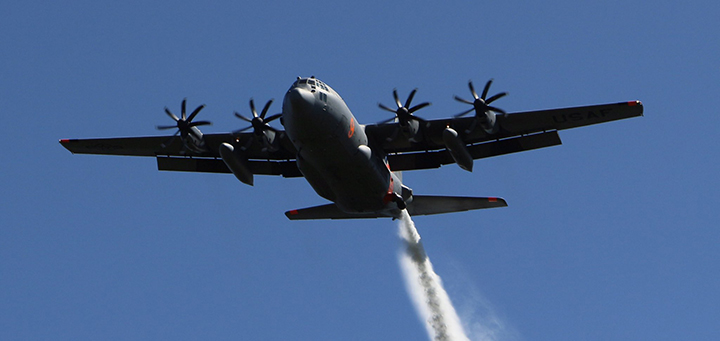News Releases
At the request of the National Multi-Agency Coordinating Group (NMAC), U.S. Northern Command has mobilized two C-130 aircraft equipped with Modular Airborne Fire Fighting Systems (MAFFS) to support wildland firefighting operations out of Channel Islands Air National Guard Station, Port Hueneme, California.
The USDA Forest Service, Bureau of Land Management and other federal wildland fire agencies will conduct annual training for Modular Airborne Firefighting Systems (MAFFS) personnel at Channel Islands Air National Guard (ANG) Station in Port Hueneme, Calif., April 22-26.
The Department of Agriculture’s Forest Service has activated eight Department of Defense C-130 aircraft equipped with MAFFS to assist with battling wildfires in Southern California. Two aircraft from the California Air National Guard’s 146th Airlift Wing, are operating out of Channel Islands Air National Guard Station in support of fire suppression efforts.











